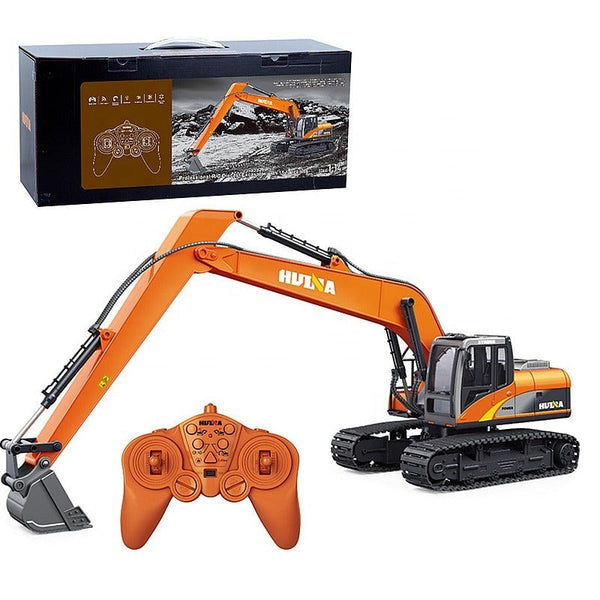Discover the Relevance of Excavator in Modern Building Projects
Excavators are essential devices in modern building jobs. Their convenience permits them to perform a large range of tasks, from digging and grading to demolition and website prep work. Advanced functions, such as hydraulic add-ons and GPS, boost their abilities and performance on job sites. As the industry develops, the relevance of excavators grows also more. Recognizing their duty can disclose understandings right into the future of building and construction techniques. What exists ahead for these devices?
The Adaptability of Excavators in Various Projects
Although excavators are often connected with large-scale building and construction projects, their adaptability allows them to be utilized in a vast array of applications, from domestic landscaping to utility maintenance. In city setups, excavators can browse limited areas to dig structures for homes or set up drain systems. Their capability to perform fragile tasks makes them optimal for landscape design projects, where they can dig deep into for fish ponds or plant trees. On top of that, excavators play an important role in energy maintenance, successfully excavating trenches for pipelines or cables without interrupting bordering locations. In agricultural applications, they aid in land clearing up and dirt preparation. Additionally, their adaptability enables them to be furnished with numerous add-ons, enhancing their capability across different tasks. This multifaceted nature of excavators not just simplifies numerous construction processes but additionally demonstrates their indispensable duty in modern facilities development and upkeep.
Trick Features and Sorts Of Excavators
The conversation on crucial functions and kinds of excavators highlights the vital characteristics that make these makers important in construction. Numerous excavator types, each made for details jobs, show their versatility and performance across various applications. rc excavator. Comprehending these classifications and functions is essential for maximizing their use in modern-day building tasks
Excavator Keys In Summary
Excavators play an essential role in modern building and construction, offering versatility and effectiveness across different tasks. These hefty machinery units come in a number of types, each tailored for details applications. One of the most typical types include crawler excavators, understood for their stability on uneven surface, and rolled excavators, which give better wheelchair on smooth surfaces. Miniature excavators are favored for small-scale jobs and limited areas, while long-reach excavators are created for deep digging. Additionally, there are customized excavators, such as hydraulic excavators, which enhance power and precision. Each type includes unique capabilities, making them important for jobs ranging from digging and grading to demolition and material handling. Comprehending these variations permits building and construction experts to select the right excavator for their job requires.
Key Features Explained
Understanding the crucial attributes of excavators enhances their reliable application in building and construction jobs. Excavators are characterized by their effective hydraulic systems, which offer the needed force for excavating, lifting, and relocating materials. Their expressed arms enable a large array of movement, facilitating exact procedures in restricted rooms. In addition, the range of accessories, such as pails, grapples, and augers, expands their adaptability to satisfy different job demands. The size and weight of excavators additionally add to their security and ability to move on various surfaces. Furthermore, innovations in innovation have actually led to the assimilation of general practitioner and automation, boosting accuracy and effectiveness in excavation tasks. These functions jointly place excavators as indispensable tools in modern-day building.
Applications in Building and construction
Transforming building and construction sites, excavators play an essential role across numerous applications, varying from property building tasks to large facilities growths. These flexible devices are equipped for tasks such as excavating foundations, trenching for utilities, and website grading. Different types of excavators, including crawler, rolled, and mini excavators, supply particular advantages tailored to the project requirements. Spider excavators stand out in rough surfaces, while wheeled excavators offer mobility on smooth surface areas. Tiny excavators are excellent for confined spaces, making them prominent in city setups. The effectiveness and power of excavators considerably quicken building processes, making certain prompt task conclusion. Their versatility even more boosts their relevance, enabling building and construction teams to take on a diverse range of obstacles successfully.
Enhancing Performance and Performance on Job Sites
Taking full advantage of effectiveness and productivity on work websites is a crucial goal in modern building. Excavators play an essential function in accomplishing this goal by streamlining different jobs. Their ability to do numerous features-- such as digging, lifting, and grading-- lowers the demand for additional equipment, therefore saving time and resources.Moreover, excavators boost workflow by permitting faster completion of projects. With sophisticated functions like hydraulic attachments and general practitioners modern technology, they can implement exact procedures that lessen errors and revamp. This precision not just improves the high quality of work however also maximizes material use, adding to check it out set you back savings.The convenience of excavators permits them to adapt to various website problems, guaranteeing that tasks proceed smoothly despite challenges. By integrating excavators into construction processes, groups can considerably boost their general performance, leading to prompt job conclusion and enhanced earnings.
Safety And Security Advantages of Utilizing Excavators
Excavators significantly improve safety on building and construction sites through enhanced operator exposure and reduced manual work dangers. By giving drivers with a clear sight of their surroundings, excavators help to prevent accidents and injuries. In addition, the machinery lessens the demand for workers to participate in harmful hand-operated jobs, even more advertising a safer work setting.
Boosted Driver Presence
Although building sites can be disorderly and loaded with prospective hazards, enhanced operator visibility plays an important role in making sure security when using excavators. Modern excavators are created with large, unhampered windows and strategically placed mirrors, enabling operators to keep a clear view of their surroundings (rc excavator). This enhanced exposure is critical for identifying pedestrians, various other machinery, and different barriers, significantly reducing the risk of crashes. In addition, several excavators integrate innovative technology, such as video cameras and sensors, to supply drivers with additional viewpoints, additionally improving awareness. The ability to see even more plainly not just help in reliable operation however also cultivates a more secure work setting, making it much easier for drivers to browse complex building and construction sites without jeopardizing safety requirements
Minimized Manual Labor Threats
When manual work is minimized through making use of excavators, numerous safety and security advantages arise, markedly boosting the health of building workers. Excavators decrease the physical strain connected with heavy lifting and repeated tasks, properly lowering the danger of bone and joint injuries. By automating procedures such as excavating, grading, and moving products, they permit employees to preserve a safer distance from possible hazards. Furthermore, excavators are geared up with advanced safety features, such as rollover security systems and boosted driver ergonomics, which better guard employees on site. The result is a considerable reduction in workplace crashes and injuries, causing enhanced performance and spirits among building and construction teams. Ultimately, the adoption of excavators contributes to a safer and a lot more efficient building atmosphere.
Excavators in Earthmoving and Website Preparation
In modern-day building and construction, a substantial section of earthmoving and website preparation jobs counts on the performance and adaptability of excavators. These equipments are made to deal with numerous soil kinds and surface, making them important for rating, excavating, and trenching tasks. Their hydraulic arms can be outfitted with different add-ons, such as augers and buckets, permitting operators to personalize their technique based on specific project requirements.Excavators succeed at relocating big volumes of planet quickly and effectively, which article increases the general construction timeline. They can navigate tight rooms and testing sites where traditional tools may battle, enhancing productivity. Furthermore, the accuracy of excavators warranties that website preparation adheres to rigorous specifications, lessening the risk of errors that could result in pricey rework.
The Function of Excavators in Demolition Tasks
Excavators play an important role in demolition tasks, as they possess the power and dexterity required to take apart frameworks successfully. Geared up with various accessories such as hydraulic breakers, shears, and grapples, these makers can adjust to various demolition requirements, whether for small structures or huge commercial sites. Their flexibility makes it possible for drivers to tackle intricate tasks while maintaining security and precision.In enhancement to their demolition abilities, excavators facilitate debris elimination, guaranteeing that work sites stay organized and safe. By breaking down frameworks into workable pieces, they enable streamlined cleaning and recycling of materials, lining up with modern-day sustainability efforts.Moreover, excavators can access tight rooms and navigate irregular terrain, making them important in city demolition tasks. Generally, their durable design and multifunctionality make excavators an important possession in the demolition phase of building, contributing significantly to job timelines and effectiveness.


Future Fads in Excavator Modern Technology and Use
As the construction sector develops, advancements in excavator modern technology are her comment is here positioned to transform their use and performance substantially. One substantial trend is the assimilation of automation and expert system, permitting excavators to operate with marginal human intervention. This shift will boost accuracy in tasks such as grading and trenching, decreasing human error and boosting productivity.Additionally, the rise of hybrid and electrical excavators is forming a much more lasting construction environment, lowering carbon emissions and gas costs. Boosted telematics systems are also emerging, enabling real-time tracking of machine efficiency and maintenance demands, which can lead to far better functional performance and longer tools lifespan.Moreover, developments in attachment innovation are increasing the flexibility of excavators, enabling them to do a more comprehensive variety of jobs. The mix of these fads demonstrates a future where excavators are smarter, greener, and a lot more adaptable, eventually improving construction project characteristics.
Regularly Asked Questions
Exactly How Do Excavators Compare to Other Building And Construction Equipment?
Excavators, characterized by their adaptability and power, stand out in digging and earthmoving compared to other equipment. Their capacity to carry out various tasks, consisting of lifting and demolition, makes them essential in building projects, improving overall effectiveness.

What Is the Typical Life Expectancy of an Excavator?
The typical life-span of an excavator usually ranges from 7,000 to 10,000 operating hours, depending on maintenance, usage problems, and version. Correct care can expand this life expectancy, making sure peak performance throughout its operational years.
Exactly How Are Excavators Maintained for Optimal Performance?
Excavators require routine upkeep for peak performance, consisting of routine examinations, fluid checks, filter replacements, and prompt fixings. Implementing a precautionary upkeep timetable helps prolong their lifespan and assurances efficient operation in various building settings.
What Are the Costs Connected With Renting vs. Acquiring an Excavator?
The costs related to renting out versus acquiring an excavator differ significantly. Renting deals reduced upfront costs yet can build up with time, while acquiring requires a substantial preliminary investment, yet gives long-term savings and possession possession benefits.
What Training Is Required to Operate an Excavator?
Running an excavator requires specialized training, typically including security procedures, machine procedure strategies, and environmental recognition. Qualification programs typically mandate functional experience, allowing operators to manage numerous tasks effectively while making sure conformity with sector laws. The most usual kinds consist of crawler excavators, known for their security on unequal terrain, and rolled excavators, which offer greater wheelchair on smooth surface areas. Small excavators are preferred for small jobs and limited spaces, while long-reach excavators are designed for deep digging. Additionally, there are specialized excavators, such as hydraulic excavators, which boost power and precision. Various types of excavators, consisting of spider, wheeled, and mini excavators, give specific advantages customized to the task requirements. Crawler excavators succeed in rough terrains, while rolled excavators use movement on paved surface areas.